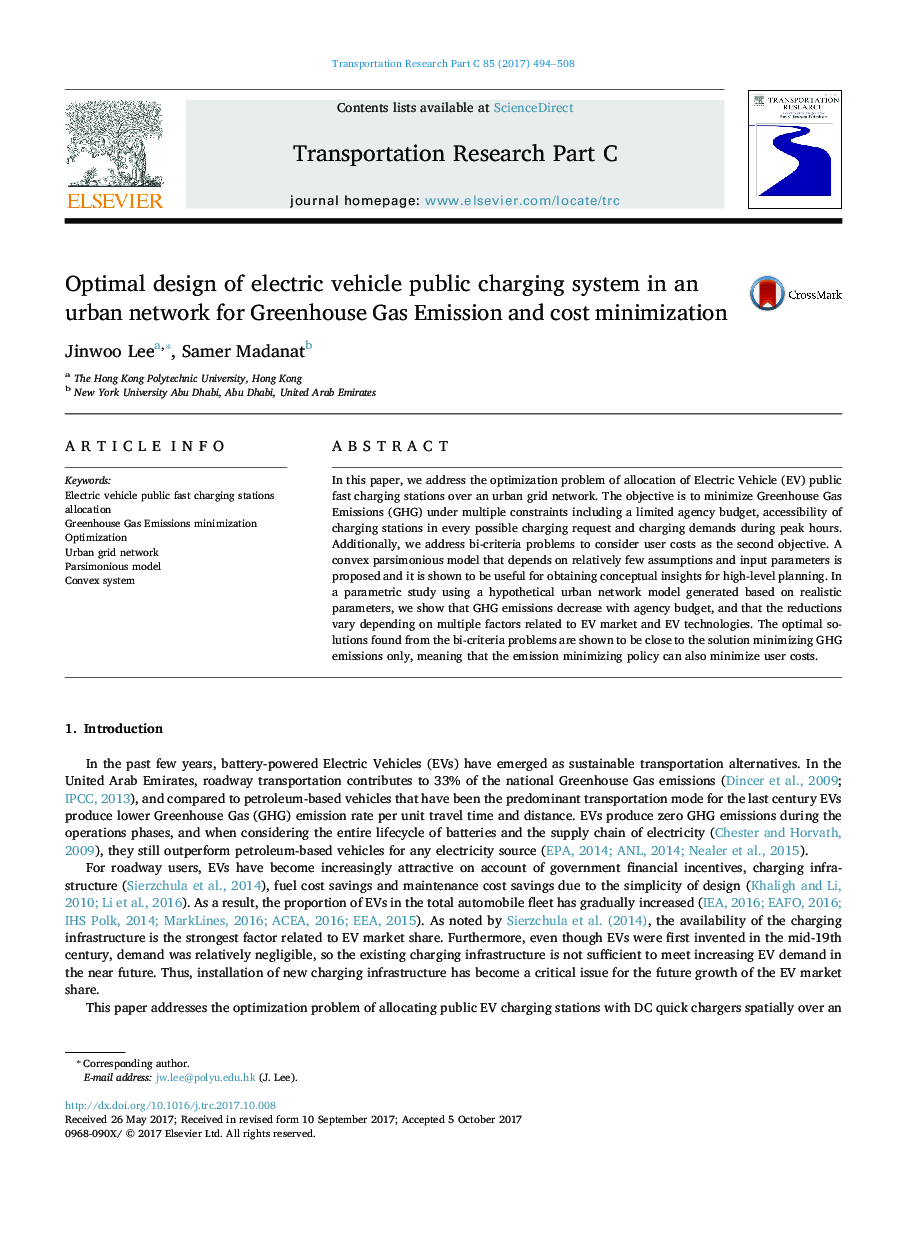| Article ID | Journal | Published Year | Pages | File Type |
|---|---|---|---|---|
| 6936309 | Transportation Research Part C: Emerging Technologies | 2017 | 15 Pages |
Abstract
In this paper, we address the optimization problem of allocation of Electric Vehicle (EV) public fast charging stations over an urban grid network. The objective is to minimize Greenhouse Gas Emissions (GHG) under multiple constraints including a limited agency budget, accessibility of charging stations in every possible charging request and charging demands during peak hours. Additionally, we address bi-criteria problems to consider user costs as the second objective. A convex parsimonious model that depends on relatively few assumptions and input parameters is proposed and it is shown to be useful for obtaining conceptual insights for high-level planning. In a parametric study using a hypothetical urban network model generated based on realistic parameters, we show that GHG emissions decrease with agency budget, and that the reductions vary depending on multiple factors related to EV market and EV technologies. The optimal solutions found from the bi-criteria problems are shown to be close to the solution minimizing GHG emissions only, meaning that the emission minimizing policy can also minimize user costs.
Keywords
Related Topics
Physical Sciences and Engineering
Computer Science
Computer Science Applications
Authors
Jinwoo Lee, Samer Madanat,
